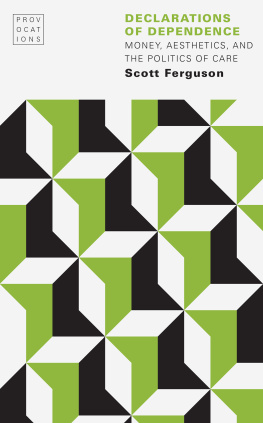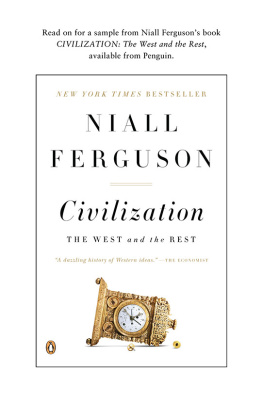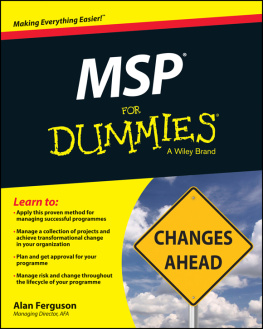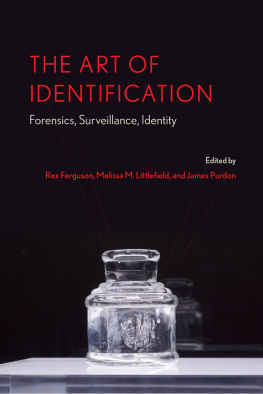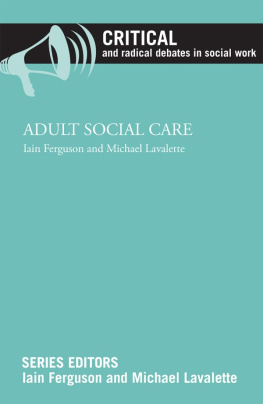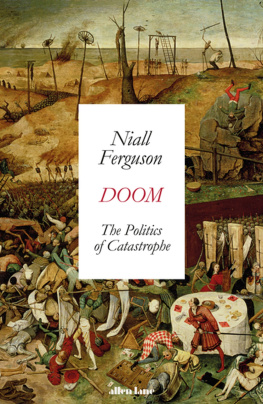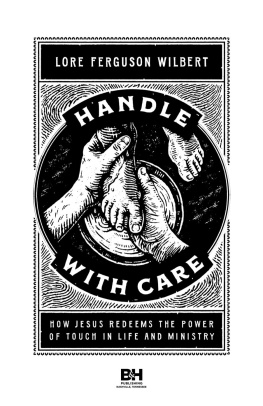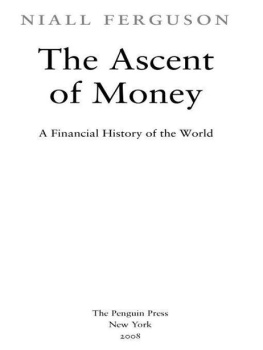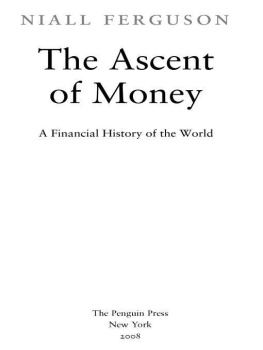Ferguson - Declarations of dependence: money, aesthetics, and the politics of care
Here you can read online Ferguson - Declarations of dependence: money, aesthetics, and the politics of care full text of the book (entire story) in english for free. Download pdf and epub, get meaning, cover and reviews about this ebook. City: Lincoln and London, year: 2018, publisher: University of Nebraska press, genre: Science. Description of the work, (preface) as well as reviews are available. Best literature library LitArk.com created for fans of good reading and offers a wide selection of genres:
Romance novel
Science fiction
Adventure
Detective
Science
History
Home and family
Prose
Art
Politics
Computer
Non-fiction
Religion
Business
Children
Humor
Choose a favorite category and find really read worthwhile books. Enjoy immersion in the world of imagination, feel the emotions of the characters or learn something new for yourself, make an fascinating discovery.
Declarations of dependence: money, aesthetics, and the politics of care: summary, description and annotation
We offer to read an annotation, description, summary or preface (depends on what the author of the book "Declarations of dependence: money, aesthetics, and the politics of care" wrote himself). If you haven't found the necessary information about the book — write in the comments, we will try to find it.
Declarations of dependence: money, aesthetics, and the politics of care — read online for free the complete book (whole text) full work
Below is the text of the book, divided by pages. System saving the place of the last page read, allows you to conveniently read the book "Declarations of dependence: money, aesthetics, and the politics of care" online for free, without having to search again every time where you left off. Put a bookmark, and you can go to the page where you finished reading at any time.
Font size:
Interval:
Bookmark:
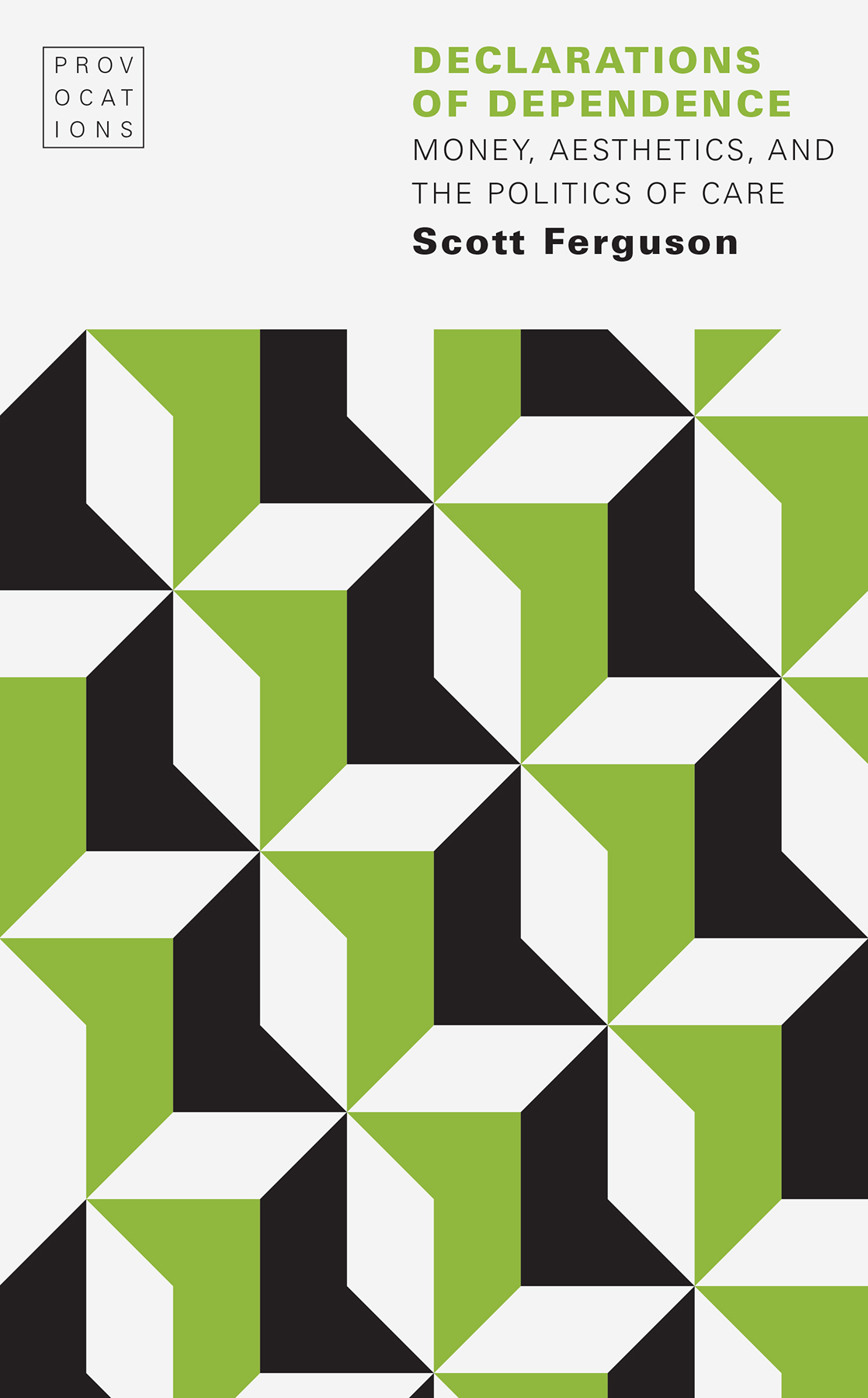
A bold polemic on behalf of collective flourishing, Declarations of Dependence challenges readers to demand more from social relations and to demand more from aesthetic pleasures and should be required reading for literary and cultural theorists, political economists, care workers, and policymakers of all stripes.
Anna Kornbluh, associate professor of English at the University of Illinois, Chicago
Deeply original, Declarations of Dependence makes a vital contribution to cultural studies and cultural and aesthetic theory.... Indeed, it is so rich in suggestions that it could inspire an entire series of Modern Monetary Theoryguided inquiries into various areas of modern culture.
Steven Shaviro, Deroy Professor of English at Wayne State University
Humanities scholarship at its best.
David Golumbia, associate professor of digital studies in the Department of English at Virginia Commonwealth University

Series editors: Marco Abel and Roland Vgs
Something in the world forces us to think.
Gilles Deleuze
The world provokes thought. Thinking is nothing but the human response to this provocation. Thus the very nature of thought is to be the product of a provocation. This is why a genuine act of provocation cannot be the empty rhetorical gesture of the contrarian. It must be an experimental response to the historical necessity to act. Unlike the contrarian, we refuse to reduce provocation to a passive noun or a state of being. We believe that real moments of provocation are constituted by a series of actions that are best defined by verbs or even infinitivesverbs in a modality of potentiality, of the promise of action. To provoke is to intervene in the present by invoking an as yet undecided future radically different from what is declared to be possible in the present and, in so doing, to arouse the desire for bringing about change. By publishing short books from multiple disciplinary perspectives that are closer to the genres of the manifesto, the polemical essay, the intervention, and the pamphlet than to traditional scholarly monographs, Provocations hopes to serve as a forum for the kind of theoretical experimentation that we consider to be the very essence of thought.
www.provocationsbooks.com
Scott Ferguson
University of Nebraska Press | Lincoln and London
2018 by the Board of Regents of the University of Nebraska
Portions of the introduction were originally published on the Critical Inquiry blog, In the Moment, as Bond, Treasury Bond: 007 Is Out of Cash, but Your Government Cant Be.
Cover designed by University of Nebraska Press.
All rights reserved
The series editors would like to thank Jon Carter, Anne Johnson, Robert Lipscomb, and Dillon Rockrohr for their work on the manuscript.
Library of Congress Cataloging-in-Publication Data
Names: Ferguson, Scott (Assistant Professor), author.
Title: Declarations of dependence: money, aesthetics, and the politics of care / Scott Ferguson.
Description: Lincoln: University of Nebraska Press, 2018. | Series: Provocations
Identifiers: LCCN 2017044659
ISBN 9781496201928 (paper: alk. paper)
ISBN 9781496207104 (epub)
ISBN 9781496207111 (mobi)
ISBN 9781496207128 (pdf)
Subjects: LCSH : Money. | Critical theory. | Aesthetics.
Classification: LCC HG 221 . F 433 2018 | DDC 332.401dc23 LC record available at https://lccn.loc.gov/2017044659
The publisher does not have any control over and does not assume any responsibility for author or third-party websites or their content.
I am profoundly grateful to the family, friends, and colleagues who enabled me to write Declarations of Dependence. I thank series editors Marco Abel and Roland Vgs for their guidance in shepherding an unlikely project to completion; Brendan Cook for his indefatigable support and command of early modern metaphysics and aesthetics; friends William Saas, Todd Barnes, and Jonathan Haynes for providing judicious feedback on imperfect chapters; and Steven Shaviro for his stunning magnanimity in responding to my manuscript. For both financial and professional support, my thanks to Warren Mosler; the Binzagr Institute for Sustainable Prosperity (especially Fadhel Kaboub and Mathew Forstater); the Modern Money Network; Roland Greene, Luis Rincon, and Adam Morris at Arcade; Jordan Rose and the History of Art Department at UC Berkeley; and my associates in the Department of Humanities and Cultural Studies at the University of South Florida (Dan Belgrad, Andrew Berish, Sara Dykins Callahan, Maria Cizmic, Bill Cummings, James DEmilio, Benjamin Goldberg, Todd Jurgess, Christie Rinck, and Brook Sadler). This book would have been impossible without the ongoing engagement of my comrades in the MMT community. Most dear to me are Jorge Amar Benet, Ral Carrillo, Alexander Douglas, Timothy Fong, David Freund, David Glotzer, Mitch Green, Rohan Grey, Robert Hockett, Stavros Karageorgis, Stephanie Kelton, Mikey McDowell, Rebecca Rojer, Maxximilian Seijo, Nathan Cedric Tankus, Pavlina Tcherneva, and Benjamin Wilson.
I have long depended on the encouragement of my confidants in the humanities, including Nima Bassiri, Gavin Benke, Stephanie Boluk, Mona Bower, Norman Gendelman, Paul Haacke, James Harker, James Hodge, Tung-Hui Hu, Anna Kornbluh, Benjamin Morgan, Julie Napolin, Scott Richmond, Peter Skafish, Yannik Thiem, Heather Warren-Crow, Damon Young, and Genevieve Yue. Living in Florida, I have come to rely on the generosity of Alycia Alexander-Guerra, Sari Altschuler, Jan Awai, Devon Brady, Gena Camoosa, Jennifer Cazenave, Brian Connolly, Jasdeep Cook, Nicholas de Villiers, Darcie Fontaine, Audrey Raymi Grounds, Ross Grounds, Julia Irwin, Chris Parsons, Steve Prince, Mario Rendina, Lois Rendina, Adam Schwartz, and Aaron Walker. Meanwhile, I owe so much to so many in California. Big ups to my Valley Boys: Romesh Fernando, Joseph Gordon-Levitt, Josh Klinghoffer, Brian Smith, and Jason Weissbrod. Thank you to mentors Whitney Davis, Colin Gardner, Ann Haley, Kevin McDermott, Chris Nealon, Anne Nesbet, Constance Penley, Bhaskar Sarkar, Kaja Silverman, Charis Thompson, and Linda Williams.
My family has continuously supported my endeavorsastoundingly, even when no one knows what I am up to. I am forever indebted to my loving and open-minded parents, Frank Ferguson and Lisa Ferguson, and to my sister Lauren Ferguson-Wilhite and her family, Jeff Wilhite, Aidan Wilhite, and Preston Wilhite. I cherish Jeanne Rust, Robert Rust, Paul Rust, Lesley Arfin, Anne Rust, and Alexis Madsen. I am also thankful to Dennis Levitt and Jane Gordon, whose parent-like guidance and leftist library played essential roles in shaping the person I have become.
At last, I dedicate this book to Amy Rustand to our two boys, Elias and Aubrey. Amy, thanks for your compassion and brilliance. Thank you for two exhausting little firecrackers. And thank God for wine, TV , and grownup conversation. You are my everything.
Human being is born and remains dependent, yet everywhere she is abandoned. Today, so many yearn to be free from the governing center, but they are more reliant upon its care than they know. Traditionally, critique has answered cares entanglements by insisting that money enslaves and the aesthetic saves. Yet neoliberal fecklessness has revealed the impotence of this dialectic, requiring us to set the historical relation between money and aesthetics on more capacious foundations. For this, critical theory must desert the Marxist image of money as a private, finite, and alienable quantum of value. Instead, it should embrace the heterodoxy of Modern Monetary Theory, for which money is a boundless public center that can be made to support all.
Font size:
Interval:
Bookmark:
Similar books «Declarations of dependence: money, aesthetics, and the politics of care»
Look at similar books to Declarations of dependence: money, aesthetics, and the politics of care. We have selected literature similar in name and meaning in the hope of providing readers with more options to find new, interesting, not yet read works.
Discussion, reviews of the book Declarations of dependence: money, aesthetics, and the politics of care and just readers' own opinions. Leave your comments, write what you think about the work, its meaning or the main characters. Specify what exactly you liked and what you didn't like, and why you think so.

